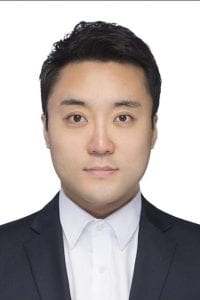
Hyunwoo Kim
September 1, 2019 – August 31, 2020
Hyunwoo Kim graduated from the Hankuk University of Foreign Studies in Seoul, South Korea in 2008. He studies Press and Information. Since his graduation, he has been working in Hankook-Ilbo, which was established in 1954 and it remains one of the most influential newspaper companies in South Korea. He came to GWIKS to study more about trade issues between the U.S. and South Korea including KORUS renegotiation. He plans to deepen his understanding of the U.S. trade policies by researching this topic at GWIKS.
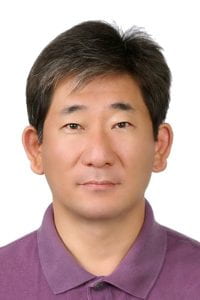
Hyun-Wook Kim
December 30, 2019 – June 30, 2020
Hyun-Wook Kim is currently Professor at Korea National Diplomatic Academy. His research areas include US-ROK alliance, US-DPRK relations and Northeast Asian security. He was an advisory member for the National Security Council and the Ministry of Unification, and is now an advisory member for Joint Chiefs of Staff and a standing member for the National Unification Advisory Council. He was a visiting scholar at UC San Diego in 2014. He has finished his Ph.D. and M.A. in political science from Brown University, and worked at the University of Southern California as a postdoctoral fellow. He received his B.A. in political science from Yonsei University.
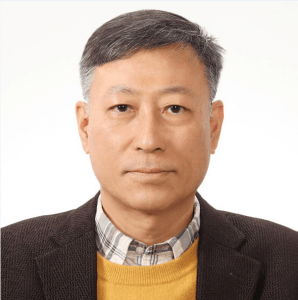
Jee-Hong Kim
February 15, 2019 – December 31, 2019
Dr. Jee-Hong Kim received his Ph.D. from Sogang University in Korean Language and is a Tenured Professor for the Department of Korean Language education at Gyeongsang National University in Jinju, South Korea. Dr. Kim has numerous publications including the most recent book, Language Production Processes: An Interdisciplinary Approach, which was nominated for its excellency by South Korea Ministry of Culture, Sports & Tourism. He also has translated 38 volumes of books and has published numerous articles over the years, including 「Non-canonical Ending Systems in Jeju Korean」, Journal of Korean Dialectology in 2017. Dr. Kim’s research is on Korean Ending Systems: Why non-canonical stuff be resided in Endings?
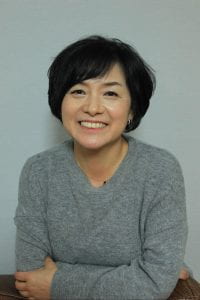
Nanhee Ku
December 30, 2019 – December 29, 2020
Nanhee Ku is a Professor of the Dept. of Humanities at the Academy of Korean Studies and joined George Washington University as a visiting scholar. Her main research areas are ancient Korean history (Palhae/Bohai) and history education. She has published extensively in the areas of Palhae history and history education in Korea, including The Exchange of Palhae and Japan (designated as an excellent academic book by The National Academy of Sciences @Republic of Korea), Annals of the Palhae Dynasty, Encyclopedia of Palhae Historical Remains, History Education between Korea and Japan (tokyo:meisei), and A New History of Parhae (London:Global Oriental). Her current research interest lies in the comparative study of the Northern-East Asian History with the focus on the ancient exchanges.
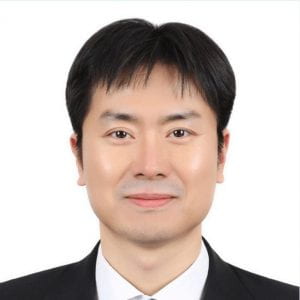
Won Kuhk
February 1, 2019 – January 31, 2020
Mr. Won Kuhk has received his Bachelor of Law from Seoul National University and received the Certificate of Completion from Judiciary Research and Training Institute. Mr. Kuhk was appointed as a Korean prosecutor in 2007 and served in various District Prosecutors’ Offices throughout Korea. He will be conducting research on various methods of securing digital evidence and the criteria for determining admissibility in the United States.
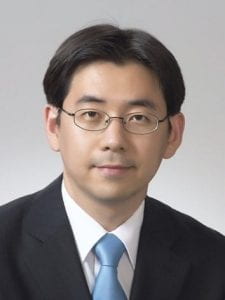
Jong Kyu Lee
September 2, 2019 – September 1, 2020
Jong-Kyu Lee is a Research Fellow at KDI and a visiting scholar at George Washington University. His main research focuses on current macroeconomic situation of North Korea as well as its special trade relationship with China. Prior to joining KDI, he was a Research Fellow at Samsung Economic Research Institute (SERI) from 2008 to 2013. As a British Chevening Scholar, he obtained a doctorate at University of London (UCL) in 2008. His current interest lies in understanding the impact of sanctions, marketization, dollarization, and demographic change on the North Korea’s economy and its policy responses.

Yoonyoung Lee
August 19, 2019 – August 19, 2020
Ms. Lee is a journalist at Yonhap News Agency which is the leading news agency in Korea. She has been covering various areas since 2000 including international affairs, business and educational issues in Korea and currently she is a deputy editor of International News Desk. Also she covered the historic summits between US and North Korea held in Singapore and Hanoi, Vietnam. Her main research focuses on new US-South Korean relations, US-North Korean relations, inter-Koreans relations toward reunification of Korean Peninsula.
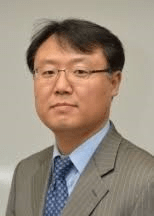
Jeahun Lee
August 12, 2019 – August 11, 2020
Lee Jeahun is a deputy editor for the Seoul Shinmun Daily which was founded in 1904. He covers political news especially in National Assembly as a team leader. He started as a journalist for the Kukmin Daily in 1999. After joining the Seoul Shinmun in October 2014, he had covered the Ministry of Foreign Affairs until December 2015. During his service time as a journalist, he mainly dealt with political and national issues. Lee Jeahun covered 16th North-South Korea Ministerial level talks held at Pyongyang, North Korea in September 2005 and other various security issues on Korean peninsula. While 2007 to 2011, he covered Seoul Central District Prosecutors’ Office and reported a variety of stories about its investigation such as exclusive reporting ‘Former Prime minister received bribe in her office,’ ‘The prosecution unofficially investigated ten aides to former President Roh Moo-Hyun.’ He was awarded the 216th monthly report by Korea Press Foundation; “The secret of fine 900,000 won (744 US dollar), In-Depth report on trials of politicians.” Lee Jeahun was selected for the 2007 Spring Jefferson Fellow on his essay of “How can Korean Industry Survive given China’s rise?” hosted by East West Center in Hawaii U.S. With B.A. of Chinese language & literature in Korea University, Seoul, He had language course in Chinese at Beijing International Studies University in 1994. He published a Korean translation book of ‘The China Choice – Why America should share power’ written by Hugh White in 2015.

Bonyoung Lee
August 1, 2019 – July 31, 2020
Bonyoung Lee is a journalist at the Hankyoreh newspaper. Since joining the Hankyoreh in 1997 he has covered numerous areas. He was the international editor at the paper. He was a fellow of the European Journalism Center. He focuses on the U.S.-China relations and it’s implications on the Korean peninsula.
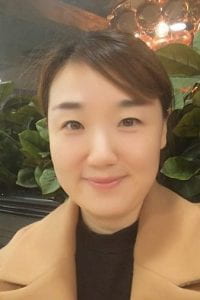
Juyeon Lee
October 21, 2019 – March 22, 2020
Ms. Lee is a lawyer, a member of the Korean Bar Association, who is working in a law firm Shin-ui. She has her JD of Sungkyunkwan University Law School. She has worked as a family law expert in Korea dealing with lots of cases. She interested in comparative law studies on divorce laws in the United States and Korea and her research in GWIKS is focusing on reasons for divorce, property division issues, and custody.
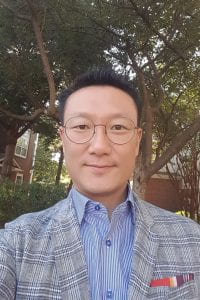
Woongha Na
September 23, 2019 – December 28, 2019
Woongha Na currently works as the policy development specialist for ROK JCS in Seoul, Korea, and has previously served as an assistant professor at KMA. He is a Ph.D. candidate in International Politics, Hanyang University and received his Master’s in Political Science at Yonsei University, and his Bachelor’s in International Realations at KMA. His research focuses on issues related to security on the Korean peninsula, deterrence strategy, arms control, denuclearization, and military transformation.
